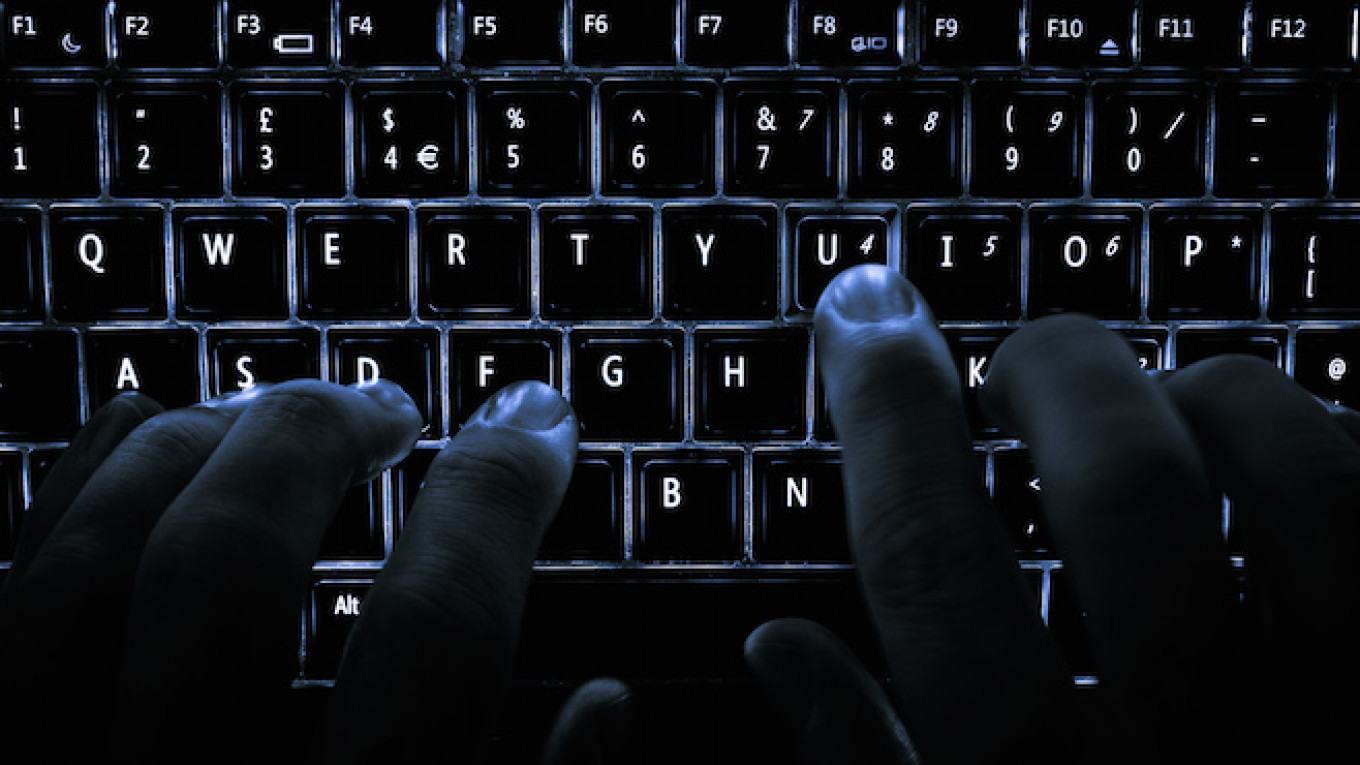A pro-Kremlin political center has unleashed a computer program that would trawl social networks for chatter about planned unauthorized gatherings and report its findings to Russian authorities, a news report said.
The program, developed by the Center for Research in Legitimacy and Political Protest, began trawling a pilot section of an unidentified social network on Monday, the center's head Yevgeny Venediktov said, pro-government daily Izvestia reported Tuesday.
Venediktov told Izvestia last month that eventually the scope of the trawling will expand to Twitter, Facebook, LiveJournal and Russia's main social network VKontakte.
“We are now facing a serious cyber threat — the mobilization of protest activists in Russia by forces located abroad,” he was quoted as saying. “All this demands that we take active and urgent measures to create a Russian system of monitoring social networks and [develop] software that would warn Russian society in advance about approaching threats.”
With the vast majority of Russia's media presenting uniformly pro-Kremlin views, members of the country's political opposition have turned to social networks to exchange opinions and organize protest rallies.
Russian media watchdog Roskomnadzor has repeatedly demanded that Western-based social networks, such as Facebook and Twitter, remove content it deems “extremist,” but not all requests are fulfilled.
The head of Roskomnadzor lashed out at Twitter earlier this year for refusing many of Moscow's demands to remove content.
Venediktov took particular issue with Twitter, saying his group's program would begin targeting the network in September, Izvestia reported.
“We carried out a study and found out that this particular social network is not only the leader among others in terms of the number of links to extremist content posted there, but also fails to remove them at Roskomnadzor's demand,” he was quoted as saying.
The program would report its findings to Russia's law-enforcement agencies, Izvestia reported, adding that Venediktov said its users could also include research scientists and government officials.
“They would be able to learn about preparations for unauthorized rallies before information about them appears in the media,” Venediktov was quoted as saying.
The head of the public movement "For Security," Dmitry Kurdesov, has warned that opposition activists could use the program to spread false information, Izvestia reported earlier.
“It is important that this development does not get into the hands of miscreants, who would send out wrong information,” Kurdesov was quoted as saying. “It cannot be excluded that information about nonexistent rallies will be sent to the Interior Ministry to distract police from some serious action or protest at another location.”
Because of the scope of social networks, the program, at least initially, would target only those pages that pro-government volunteers list in a database of dubious content, Venediktov was quoted as saying.
Russian officials have recently proposed enlisting volunteers to search for supposedly extremist content online, according to media reports.
The new program is called “Laplace's Demon,” Izvestia reported — a name taken from a mathematical thought experiment proposed by French scholar Pierre-Simon Laplace in the 19th century featuring a “demon” who knows the location and momentum of every atom in the universe.
Contact the author at [email protected]
A Message from The Moscow Times:
Dear readers,
We are facing unprecedented challenges. Russia's Prosecutor General's Office has designated The Moscow Times as an "undesirable" organization, criminalizing our work and putting our staff at risk of prosecution. This follows our earlier unjust labeling as a "foreign agent."
These actions are direct attempts to silence independent journalism in Russia. The authorities claim our work "discredits the decisions of the Russian leadership." We see things differently: we strive to provide accurate, unbiased reporting on Russia.
We, the journalists of The Moscow Times, refuse to be silenced. But to continue our work, we need your help.
Your support, no matter how small, makes a world of difference. If you can, please support us monthly starting from just $2. It's quick to set up, and every contribution makes a significant impact.
By supporting The Moscow Times, you're defending open, independent journalism in the face of repression. Thank you for standing with us.
Remind me later.


